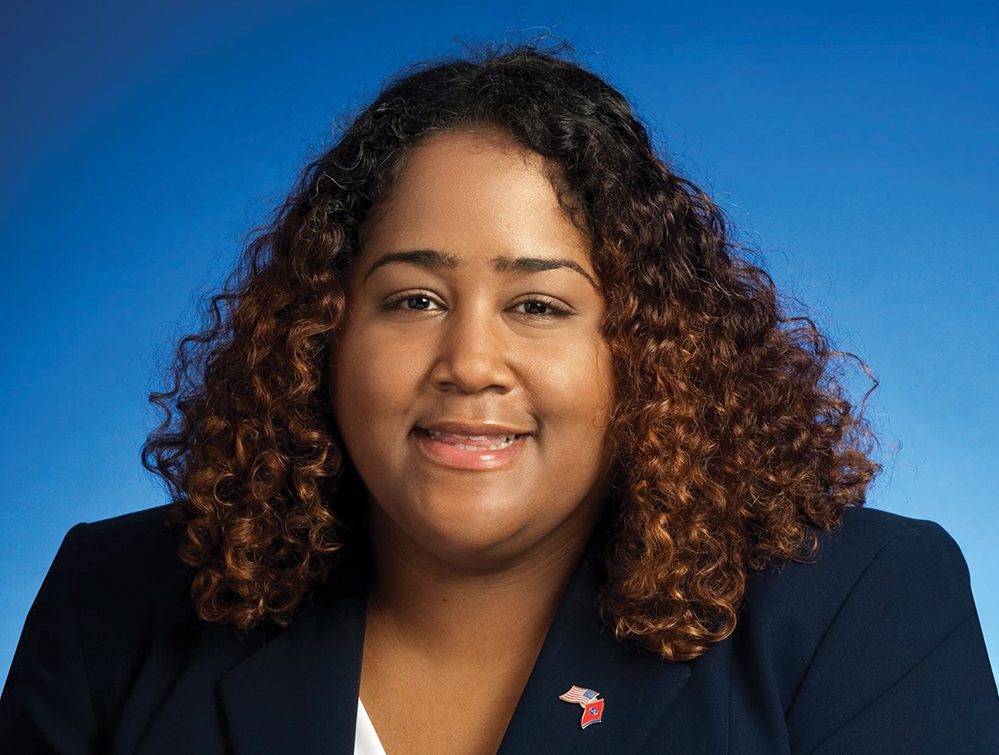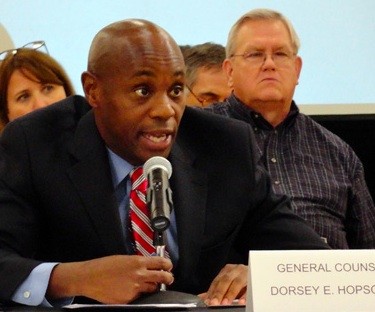On Wednesday of this week, representatives of the Germantown community were scheduled to make a presentation to the property disposition committee of the unified Shelby County Schools board.
 Jackson Baker
Jackson Baker
David Pickler
Their presentation would attempt to resecure for the soon-to-be Germantown municipal school district the rights to three schools — Germantown High School, Germantown Middle School, and Germantown Elementary School — claimed for the unified district under the plan announced by Superintendent Dorsey Hopson and approved last week by the SCS board. Hopson and board attorney Valerie Speakman gave the thinnest possible license for negotiations on the point, so any major change on the point is unlikely.
But behind the scenes there is an effort brewing in Germantown to circumvent the Hopson plan, and, according to David Pickler, a Germantown member of the current SCS board, it would take the form of an application for charter-school status by the three affected schools — and perhaps by all eight public schools in Germantown, including the five left within the city’s municipal district by the Hopson plan.
Such an application might become the focal point of ongoing efforts in the Tennessee General Assembly to firm up state control of charter-school applications and the state’s authority to overrule decisions by local school boards on approving charter applications.
And, while, as Pickler concedes, the current SCS board’s ownership of public school buildings is “indisputable,” the conversion of Germantown schools into charter schools could, he believes, complicate the legal situation regarding control of the buildings.
Pickler acknowledged that the Hopson plan, which has met with the approval of several other incorporated suburbs, has tended to isolate Germantown from its sister suburbs, though he insisted that efforts to coordinate suburban school policy will go forward.
• Still to be determined is the effect of the incipient suburban schism on plans for a consortium of municipal school districts at some not-too-distant date. Plans for such a reassembling of the old suburban-only Shelby County Schools system have been in the works for some time, though getting all six of the soon-to-be suburban districts on board has so far been an elusive goal.
The Hopson plan may complicate things further, depending on what happens with regard to the policy wedge which the plan has temporarily created between Germantown and several of its neighbors.
One of the most rapt attendees at last week’s meeting of the Unified School Board was John Aitken, former superintendent of the former version of SCS, consisting of the six incorporated areas plus the unincorporated areas of Shelby County. It was no secret that Aitken had wanted the superintendency of the unified system, the position now held by Hopson, and had won the de facto endorsement of the Transition Planning Commission, the blue-ribbon group, created by the Norris-Todd Act of 2011, which labored throughout 2011 and into 2012 to prepare a comprehensive plan for city-county educational unity.
Aitken’s hopes were eventually doomed by resistance from the residual Memphis City Schools board core on the provisional 23-member board that bridged the city and county systems up until July. So, like former MCS superintendent Kriner Cash before him, Aitken took retirement, announcing it at an emotionally fraught meeting of the provisional board in March.
But Aitken was subsequently engaged by the municipalities of Germantown, Collierville, Arlington, and Lakeland as a “consultant” on the establishment of their school systems, and, as Pickler made clear in an interview with the Flyer some months ago, it was contemplated that Aitken become the acting head of the prospective suburban school consortium.
The fate of that consortium — which Bartlett and Millington had not yet bought into — is now further clouded by fallout from the Hopson plan and will doubtless at some point figure on the agendas of the suburban school boards elected this week by the six municipalities.
• Various sources are now floating the idea that the official name of Germantown High School is actually Mabel C. Williams High School — a fact that could have at least symbolic consequences on the disposition of the high school and its two on-site sibling institutions going forward. Asked about the issue, Pickler said there was evidence that the actual nomenclature for GHS might indeed be Mabel C. Williams and that the actual name of Bartlett High School could be Nicholas Blackwell High School. He noted that when ex post facto honorary diplomas were issued to military veterans who attended both schools, they bore those vintage names.
• As first noted on the Flyer‘s website last week, federal judge William J. Haynes Jr., chief judge of the Middle Tennessee district, ruled last Thursday that the Shelby County Election Commission must list Jim Tomasik as a Libertarian Party candidate on the special election ballots for state House District 91 — not, as had previously been the case in preliminary listings, as an independent.
The special election, scheduled for November 21st, with early voting in effect from November 1st through November 16th, will pit Tomasik against Ramesh Akbari, who won the Democratic nomination for the seat in a special primary election on October 8th. The election is to determine a successor to the late Lois DeBerry.
In view of the closeness of the general election date, lawyers for Tomasik had sought an emergency injunction from Haynes, who, after hearing arguments Thursday, issued it from the bench.
In making his ruling, Haynes noted that in February 2012 he had already ruled unconstitutional provisions of Tennessee’s preexisting ballot access law, which had allowed automatic ballot access only for Democratic and Republican candidates, requiring “minor” parties to meet standards for ballot access which he considered prohibitively difficult.
That ruling was in response to a joint suit by the Green Party and Constitutional Party, who were faced with a requirement to present roughly 40,000 signatures on petitions to gain state ballot access. That figure, representing 2.5 percent of the votes cast in the previous gubernatorial election, was coupled with early deadlines and with requirements that petitioners be members of the affected parties.
The office’s state election coordinator Mark Goins and Secretary of State Tre Hargett were the defendants in 2012 and in Libertarian Tomasik’s case as well. The state has appealed Haynes’ 2012 ruling.
Meanwhile, efforts have been under way in the General Assembly to reform the state’s ballot access law. State senator Jim Kyle (D-Memphis) filed SB 1091 in the 2013 legislative session, which would require milder requirements for minor parties to gain ballot access — 250 petitioners in the case of state Senate or state House elections.
The bill was bottled up in the state and local committees of both legislative chambers, but a nine-member study commission on ballot access was created, with Kyle the sole Democrat among six legislative members. One member each from the Green, Libertarian, and Constitutional parties filled out the commission’s membership.
Kyle said that Ken Yager (R-Harriman), chairman of the House state and local committee and ad hoc chair of the commission, had canceled a meeting of the commission scheduled for mid-October. That was about the time that Tomasik filed his suit.
Prior to Thursday’s hearing and Haynes’ ruling, Kyle had welcomed the hearing as a test case for ballot access reform. The Memphis Democrat, chairman of the Senate Democratic caucus, said Jason Huff of his staff had done a study indicating that both the state and the nation were subject to cycles of party realignment which recurred roughly every 70 years and that the political ferment for such a moment was at hand.
Kyle also suggested that states with elected secretaries of state had proved most amenable to ballot access reform and that perhaps Tennessee should transition to a method of popular election for its secretary of state.
While Democrats statewide might, like Kyle, take solace from Judge Haynes’ ruling, the immediate impact of it among Democratic activists in Shelby County was to generate a minor alarm as to its effect on the forthcoming special general election for the state House District 91 seat.
Gale Jones Carson of Memphis, secretary of the state Democratic Party and a member of the Democratic National Committee, sent out an email to party members this week stating that the ruling could spur a turnout on behalf of the Libertarian candidate. “Tomasik’s candidacy should not be taken for granted, particularly during this expected low voter turnout special election,” Carson warned.


 Jackson Baker
Jackson Baker 